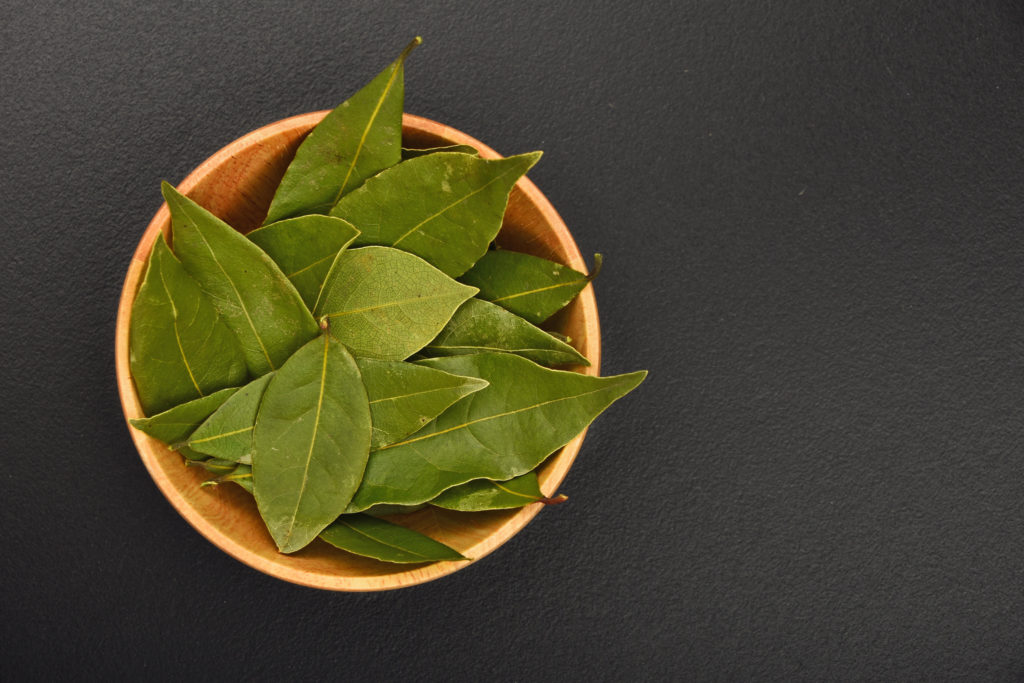
Few ingredients have as rich a history as the bay leaf. Today, we typically use it as an ingredient to flavor sauces and stews, and it’s commonly found in everything from the curing liquid of hams to almost every menudo and adobo recipe in existence in the Philippines. However, its significance goes far beyond its herbal, vegetal flavor.
Here’s a brief summary of the history of the humble bay leaf, also known by its scientific name, Laurus nobilis.
The Bay Leaf in Mythology
The plant that we know today as the bay leaf has been of great historical and cultural importance in almost every civilization the world over. In China, the bay leaf figures prominently in the mythology surrounding the phases of the moon. Legend has it that a certain erring woodsman was punished by being forced to constantly prune and trim a giant tree which, like the moon, would constantly renew its flowers and leaves on a regular basis. The tree variety he would be forced to prune would change over the years, before eventually settling on the bay leaf.
In the west, people learn of the bay leaf, also known as laurel, from its Greek etiological tale featuring Apollo, god of the sun, and the fair maiden Daphne. According to the story, while Apollo was riding his chariot across the sky, he spied the lady and was so taken with her beauty that he came down from the heavens and attempted to court her. Daphne, unaccustomed to being the subject of a god’s affections, cried out for aid to the earth mother, Gaia, who responded by transporting her suddenly to the island of Crete. Left in Daphne’s place was the first laurel tree. In an attempt to console himself at the loss of his great love, Apollo fashioned a coronet for himself from the leaves of the laurel tree, and many depictions of him in art and statuary today still show him with his coronet of bay leaves.
From a symbol of unrequited love, the crown of laurel leaves would eventually become a signifier of great and heroic feats. The winners of the Pythian Games, a sporting competition similar to the Olympics and held in Apollo’s honor, would be gifted with crowns woven from bay leaves to identify them as exceptional athletes. Some legends even state that the bay leaf itself was responsible for the visions of oracles, who, upon chewing the leaves, were said to be able to tap into the powers of the sun god himself.
The ancient Romans would carry on many of the beliefs that surround the laurel leaf, further embedding it as a symbol of power, stature, and victory. For the Romans, laurel leaves and crowns made from them were of such great importance that the burning of them, even as an offering to the gods, was strictly forbidden. The emperor Augustus had twin laurel trees planted both outside the gates of his house, and outside the temple to Apollo that he had built, to indicate both his great devotion to the sun god and his victory during the Roman Civil Wars.
The Bay Leaf Today
Today, laurel is one of the most widely used herbal ingredients in the world. While fresh leaves are sometimes used in cooking, they have a very mild, herbal flavor which only becomes more robust and pronounced after the leaves are aged and dried. It can be used whole or crushed, but the whole leaves are usually discarded due to the coarse, woody nature of the leaves.
As an ingredient, bay leaves add a vegetal, slightly bitter element to the flavors of sauces and stews, as well as a slightly herbal note. This is likely caused by the concentration of eucalyptol in the leaves, as well as trace amounts of other substances such as terpineol, geraniol, and lauric acid.
Beyond its application in food, laurel leaves are also widely used as a component for homeopathic medicine. Practitioners of alternative medicine claim that compounds in the leaves are responsible for blood clotting and the prevention of infection; consequently, salves using crushed bay leaves are frequently used for treating open cuts and large wounds. Poultices that include bay leaves are also supposedly therapeutic in the treatment of skin irritations caused by commonly occurring plants such as poison oak and poison ivy. Extracts and synthesized versions of the oils present in laurel leaves are also used as infusions into massage oils and aromatherapy oils.
Finally, some of the distinction that comes with being crowned with laurel still carries through today. In Italy, some schools still crown their graduates with laurel leaves during commencement exercises.
While other herbs and spices may have more robust flavors or colors, it cannot be denied that the history of the bayleaf is one filled with lore and vibrancy. While the practice of crowning others with laurel may seem slightly out of date, the herb itself continues to be a valued member of the pantheon of spices in today’s kitchen.
References:
https://www.ncbi.nlm.nih.gov/pmc/articles/PMC1456996/
https://www.rhs.org.uk/Plants/99463/Laurus-nobilis-Aurea/Details
https://web.archive.org/web/20090412090109/http://www.spice-trade.com/bay-leaf.html
https://books.google.com.ph/books?id=8uf7CAAAQBAJ&pg=PT270&redir_esc=y#v=onepage&q&f=false